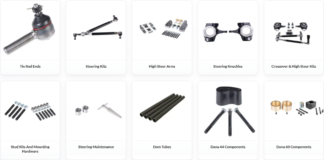In the evolving landscape of today’s society and business world, it is crucial for every company to manage its resources efficiently. Leveraging tools for monitoring assets can assist businesses in overseeing and enhancing the utilization of their resources. There are various options when it comes to choosing the right asset-tracking solution that aligns with your specific needs. This article will explore considerations to keep in mind while selecting an asset-tracking system that best suits your business needs.
Exploring Asset Monitoring
Monitoring assets involves managing tools and stock to enhance their use and reduce waste efficiently within organizations. These asset-tracking systems employ technologies such as barcodes, GPS, and RFID to improve operations and increase productivity. Due to the advantages each technology offers, it’s essential to evaluate business requirements before deciding on an approach.
Understanding the Requirements of a Company
Before exploring tracking system choices for businesses, it’s crucial to first define the company’s objectives. This includes considering the types of assets that need monitoring and the data required for supervision purposes. Companies may be focusing on addressing theft concerns, improving maintenance schedules, or streamlining inventory management processes. Pinpointing these specific objectives helps in selecting a tracking system that aligns with the company’s needs and goals.
Exploring the Progress of Technology
Different technologies used for tracking assets have benefits and drawbacks to consider. Barcoding systems are recognized for being cost-effective and efficient in inventory management operations, while RFID technology allows for real-time asset tracking without the need for intervention. GPS systems excel in monitoring vehicle fleets and providing location details. It’s crucial to evaluate the advantages and disadvantages of each technology before making a decision.
The Capacity to Evolve and Flexibility
A scalable strategy is crucial for a company’s success as it grows and its needs evolve over time. It ensures integration and flexibility without the requirement for major reorganization. Assess whether the chosen system can seamlessly integrate with existing setups to support future growth. Scalability and adaptability are factors that contribute to long-term success.
Simple and User-Friendly Interface
Choosing an asset tracking system depends on how easy it is to use for streamlining operations within a company environment. Additionally, a user-friendly interface helps reduce training time and enables employees to manage the system efficiently. Look for systems that include dashboards and easy navigation. Make sure the interface simplifies processes for accurate data access.
Considering Expenses
Financial constraints often play a role in determining which tracking systems to choose. Evaluate the costs associated with ownership, such as installation fees and ongoing maintenance and upgrades. While opting for budget solutions may seem enticing, it’s crucial to ensure they offer the necessary functionalities and features. Finding a balance between affordability and functionality ensures an informed decision.
Support for Clients and Learning Opportunities
Incorporating tracking systems into operations relies heavily on customer service and training resources. Providers must promptly offer support to tackle any hurdles that may arise. Equipping employees with training materials is crucial for enabling them to understand the system’s features and derive benefits from the chosen solution.
Thoughts on Feedback and Reviews
Exploring feedback and reviews expressed by users can provide insights into the system’s performance in real-world scenarios. Users’ experiences reveal the challenges and benefits of utilizing the system and offer valuable perspectives. It’s important to consider evaluations from businesses with similar requirements to ensure that the system you select aligns with your needs.
Evaluation
Before integrating the system into your company’s operations, it is advisable to run a trial or pilot program initially. Trials allow companies to evaluate the system’s performance and identify any issues that may arise, ensuring it meets their particular needs. The trial stage provides an opportunity to measure user satisfaction levels and implement any necessary adjustments.
Final Thoughts
When choosing an asset monitoring system, it’s important to consider factors such as understanding business needs, evaluating different technologies, and prioritizing user-friendly interfaces. These elements help companies select a platform that enhances productivity effectively. Moreover, ensuring scalability for growth, incorporating security measures, and ensuring integration capabilities all play a role in achieving long-term success.














